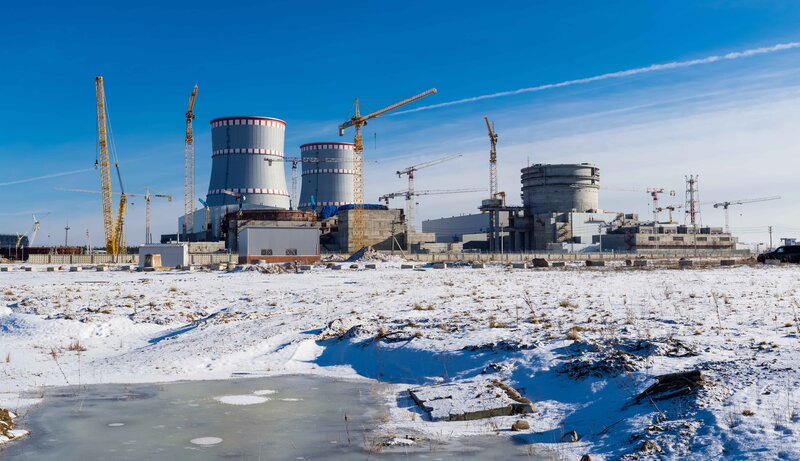 Egypt's House of Representatives has approved government-drafted amendments to the 1976 law regulating the activities of the Nuclear Power Plants Authority (NPPA). "The legislation will give tax breaks to both Egyptian and foreign contractors," said NPPA Chairman Amgad El-Wakeel.
Egypt's House of Representatives has approved government-drafted amendments to the 1976 law regulating the activities of the Nuclear Power Plants Authority (NPPA). "The legislation will give tax breaks to both Egyptian and foreign contractors," said NPPA Chairman Amgad El-Wakeel.
The El Dabaa NPP will comprise four units with generation III+ VVER-1200 pressurised water reactors. The NPP is being constructed in accordance with and contracts that entered into force in 2017. The $30bn project is mainly financed through a $25bn Russian loan. Rosatom will supply nuclear fuel throughout the lifecycle of the plant, arrange for the training of the Egyptian personnel, and assist in the operation and maintenance of the plant for the first 10 years. The reference plant for El Dabaa is the Leningrad-II NPP. Construction of unit 1 began in July 2022, and work on unit 2 began in November 2022. A construction licence was issued for unit 3 in April. Construction of all four units is planned for completion by 2028-2029 and Egypt expects that the NPP will reach full capacity by 2030.
El-Wakeel explained that, while the NPPA already had South Korean contractor companies construct some of the facilities at the plant, including turbine buildings, the new legislation will also open the door to local contractors. "El Dabaa's NPP is now proceeding according to schedule after some delays due to COVID-19. The new legislation aims to speed up implementation of the project by giving the NPPA greater powers and flexibility to remove all obstacles impeding the project.”
"El-Dabaa project is now moving ahead at full speed in accordance with timetables and without further delays," said El-Wakeel. "The Egyptian Ministry of Electricity and Rosatom will pour the first concrete foundation for the plant's third nuclear reactor in May.”
Hend Rashed, Deputy Chairman of the House Energy & Environment Committee said the legislation will speed up implementation of the NPP “in terms of fully exempting from taxes all parties involved in building and operating nuclear projects, including contractors, subcontractors, equipment suppliers, and workers”. It will also extend the NPPA's mandate to include water desalination projects powered by nuclear technology. “In addition, it will allow NPPA to recruit state employees whose high-calibre scientific experience can contribute to the quick implementation of Egypt's nuclear programme," said Rashad.
Image: The El Dabaa NPP is based on the Leningrad II NPP in St Petersburg, Russia (courtesy of Creative Commons)






